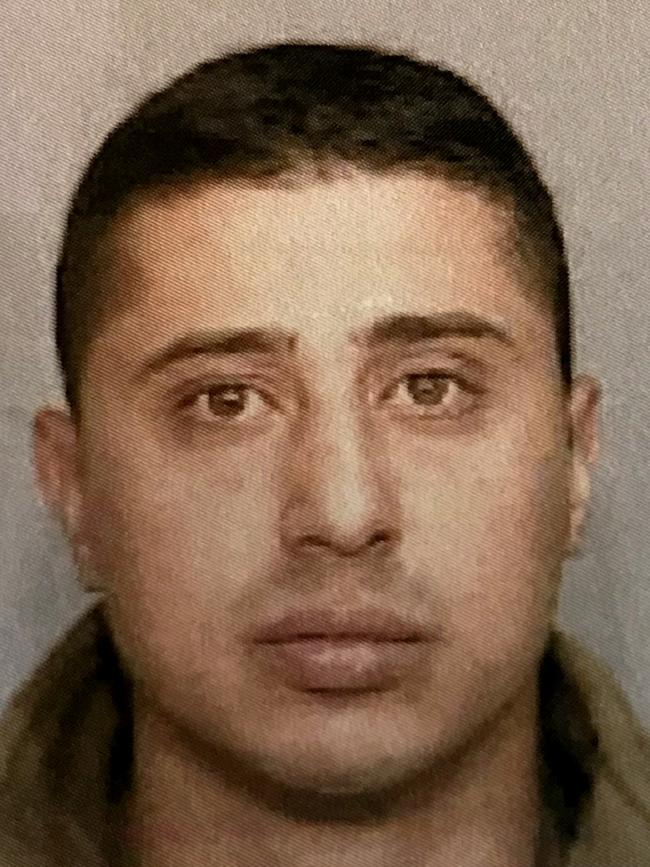The Snitch: Bilal Haouchar’s extensive prison record revealed
BILAL Haouchar, who has a longstanding hatred of the Ibrahim family, has only one entry on his adult criminal record. But during the time he spent in prison, he was charged with breaking jail rules on 42 occasions, The Snitch reveals.
NSW
Don't miss out on the headlines from NSW. Followed categories will be added to My News.
THE Snitch, The Sunday Telegraph’s law and order column, today reveals the extensive prison record of a man who has a longstanding hatred of the Ibrahim family, as well as whether police should have laid charges against the Canterbury Bulldogs players involved in the Mad Monday nude antics.
WALLACE WALK ALL THE TALK OF COPS
IT has been described as fake news but talk is rife in NSW Police ranks that one of the state’s most senior and recognised female detectives is lining up her retirement.
Detective Superintendent Deb Wallace has led a celebrated 34-year career in the cops, from a fresh-faced constable on the Anita Cobby murder investigation to smashing the Brothers for Life gang as the head of the Middle Eastern Organised Crime Squad.

Ms Wallace denied she was looking to retire next year when contacted on Friday.
But that is in direct contrast to the NSW Police rumour mill, which has been in overdrive on the issue and tipped the departure to occur in the next 18 months.
“It is widely spoken about and has been for the past 12 months,” one investigator said.
Her role at the helm of the Criminal Groups Squad is one of the most sought-after positions at the State Crime Command and there will undoubtedly be plenty of jockeying for the spot.
Crooks have been known to dub Supt Wallace the “smiling assassin” — a testament to the charming demeanour that shadows her tough approach to Sydney’s gangsters.
The halls of the State Crime Command will seem a little more bleak without Wallace’s vibrant suits and outgoing personality.
BILAL’S JAIL ANTICS STRETCH SCREWS
HIS sparse criminal record doesn’t back up Bilal Haouchar’s status as one of the state’s most feared criminals, but his jail record does.

It is a good behaviour bond after he pleaded guilty to being an accessory after the fact to the murder of Ali Eid, who was shot dead in Punchbowl in 2012.
Haouchar, who was originally charged with murder, spent more than two years behind bars with his bail refused waiting for the case to conclude.
In the time he has spent in prison, where he was often classified as a high-risk inmate, Haouchar’s record stretches to three pages and he has been charged with breaking jail rules on 42 occasions.
He was charged with intimidation seven times and convicted on six.
For that, he was ordered off buy-ups for 60 days, was banished to his cell for 17 days, given no contact orders and banned from watching TV or using the amenities for two weeks.
In March 2015, he was given a week in his cell for fighting.
He has also been punished for using an unlawful phone, entering other cells, damaging property, assault, smoking, giving false information and disobeying directions.
NUDITY CASE
IT has been hotly debated whether police should have laid charges against the Canterbury Bulldogs players who were photographed nude in a city pub on Mad Monday.
Here’s why there is a case.
Players Adam Elliott and Asipeli Fine were both charged with wilful and obscene exposure over the incident at the Harbourview Hotel in The Rocks.
MORE FROM THE SNITCH
AFP OFFICER ACCIDENTALLY EXPOSES SOME SECRETS
SURPRISING THING POLICE FOUND IN BIKIE ASSOCIATE RAID
Those arguing against police charging the players say it is unfair because, while they were nude, they were in a privately hired room and not mixing with the public.
But a close reading of the wording of the legislation shows why police believe they have a case.
In short, a pub is a public place, and even if it was privately rented, police allege the players were still visible to the public outside — hence the photos.
This does not suggest Elliott and Fine are guilty, only that there was justification for police to charge them.
Get your protractors out, because Snitch suspects there will be an argument down to the millimetre about how much of the pub’s interior can be seen from the outside. Both are due to face court on October 24.
DEALER LIGHT-ON
THE man who allegedly sold cocaine to the police officer son of broadcaster Ray Hadley was allegedly stocked with underweight bags of the drug, and experts say the practice is not uncommon.
When police arrested Daniel Hadley in Sydney’s northwest in August, they allege he was carrying a small bag containing 0.79g of cocaine. Police also arrested the man accused of selling Hadley the drugs, Shaquille Moubayed, and allegedly found him holding nine bags of cocaine each containing 0.8g of the drug.
The weight is significant because cocaine is almost always sold by the gram for somewhere between $300 and $350.
However, Snitch’s sources tell us it is not uncommon for dealers to short change their buyers by putting less than 1g in each bag while still charging full price.
KITE HARD ACT TO SWALLOW
A PRISONER caught dumping hundreds of kilograms of coke in front of police has tried to dispose of incriminating evidence in another blatant fashion.
While behind bars in Silverwater jail, the brother of an Olympic athlete was attempting to pass a note to a visitor — a no-no behind bars — when a screw (prison officer) busted him.
Rather than risk having the contents read by unintended recipients, the inmate hastily shoved it in his mouth and ate it — much to the amusement of the crowd visiting that day.
Snitch can’t reveal his identity for legal reasons but can confirm he is in the slammer for drugs, which he tried to get rid of as police closed in on him this year. Prisoners go to creative lengths to conceal notes, dubbed kites, from rolling them up into tiny little balls and shoving them up their noses to swallowing them if they get sprung.
It’s a popular way for inmates to get information from one jail pod to another or to the outside world.
